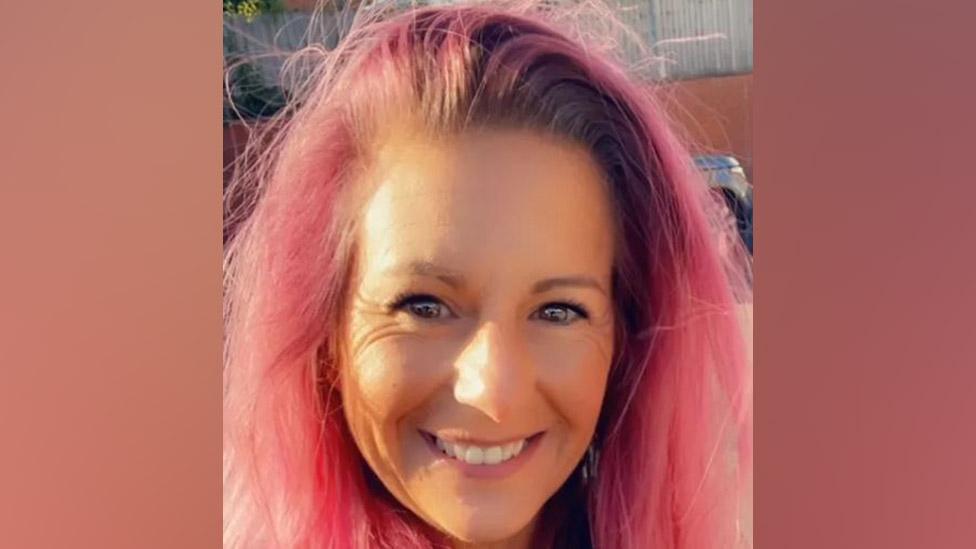Ambulance strike apology paramedic says action is necessary
- Published
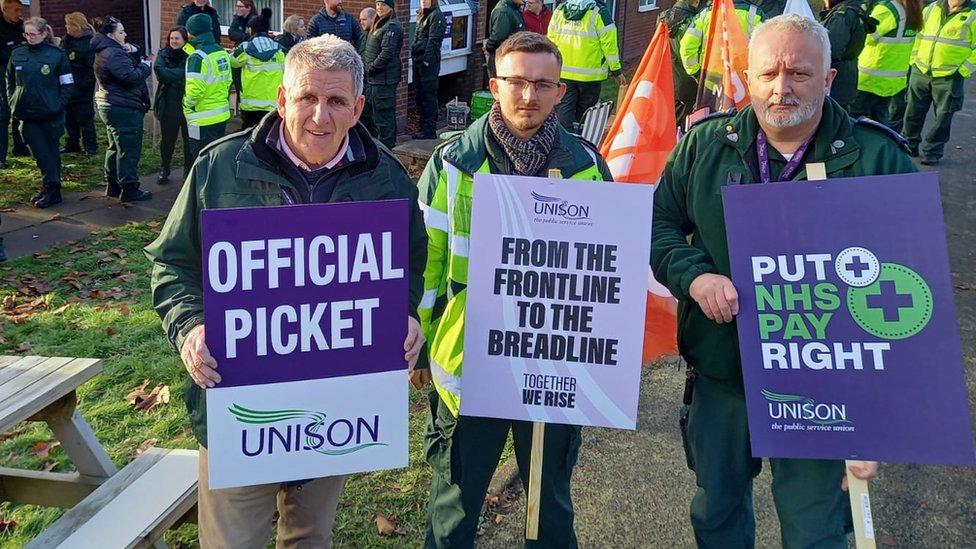
Mr Robb (above left) said some of his colleagues "can't afford to put petrol in their car to get to work and using food banks"
A paramedic has offered "true heartfelt apologies"to anyone affected by the ambulance workers' strike but said action was necessary due to the pressures staff were facing.
Thousands of staff in England and Wales are striking over pay and conditions.
Dave Robb, from Warrington, said a lack of resources was standing in the way of paramedics helping patients.
Health Secretary Steve Barclay said unions had "taken a conscious choice to inflict harm on patients".
Strike action is being by taken by more than 10,000 paramedics, control room staff and support workers who are members of the Unison, GMB and Unite unions.
Mr Robb, who works for North West Ambulance Service (NWAS) and is a convenor for Unison in Cheshire and Merseyside, said demand for emergency help was "outstripping resources".
"We have vehicle and staff shortages [and] jobs are stacking up so much that we are getting to jobs too late," he said.
"By the time we get there, patients have died.
"You never know if you could have made a difference, but we are not given the chance."
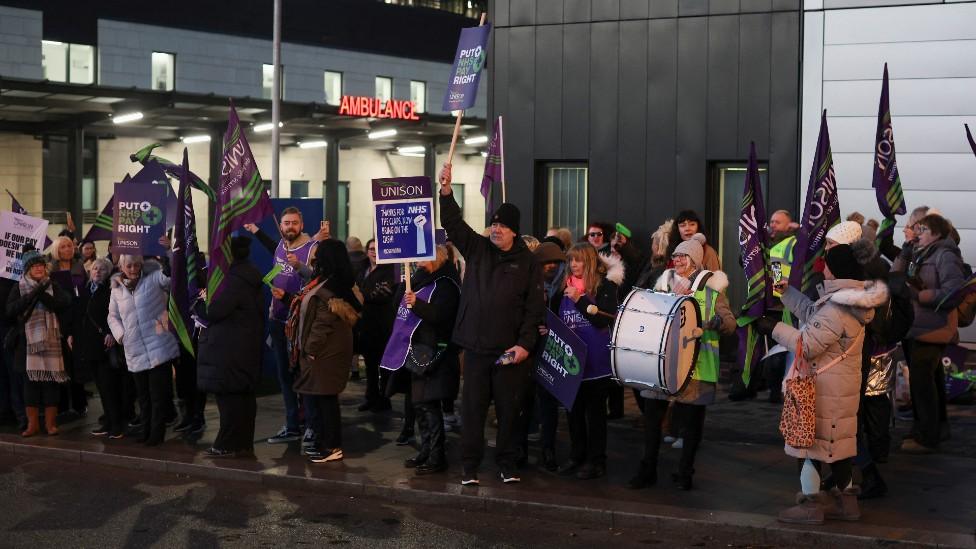
Mr Robb's colleagues have formed picket lines across the North West, including one at the Royal Liverpool University Hospital
Mr Robb, who has been a paramedic for 36 years, said the situation was "soul-destroying" and morale was "at an all-time low".
"There is no such thing as winter pressures any more," he said.
"It is constant pressures every single day."
He said that staff were having to deal with those pressures in work, while also being put under stress by the cost of living crisis.
"Some can't afford to put petrol in their car to get to work and using food banks," he said.
He said it meant the service was "losing paramedics at an alarming rate and they are not easy to replace [because] it is a highly skilled job".
He said striking was a last resort, adding: "All I can say is my true heartfelt apologies for any relatives of any people out there that may suffer.
"We are caring professional people who went into this job to care for patients, but unfortunately, due to the lack of the government responding to our request, we are in the situation where we are at."
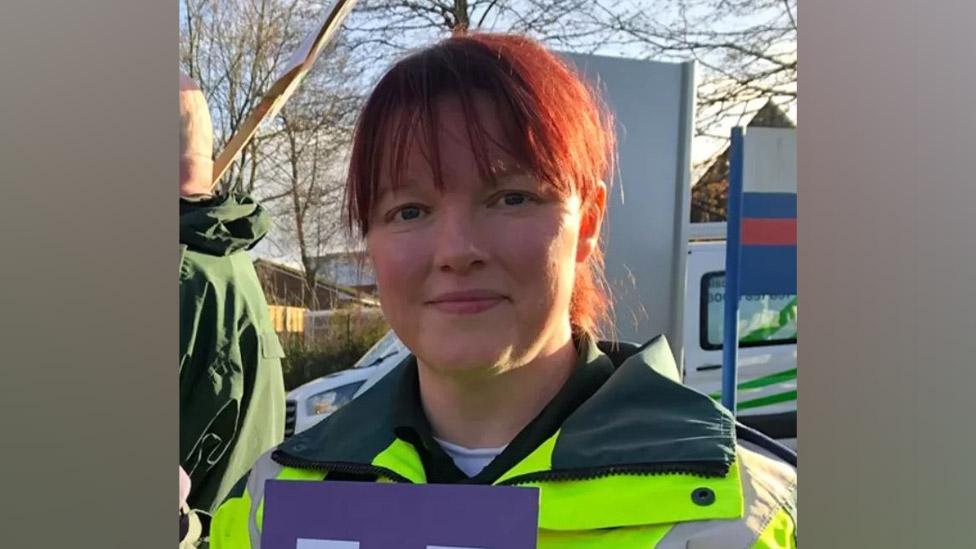
Ambulance staff are "subjected to a lot of trauma", Manchester paramedic Claire says
Meanwhile, a paramedic who works in Manchester described "nearly crying" as she reluctantly joined the picket line.
"You feel like you are abandoning your patients," Claire, who has been doing the job for 23 years, told BBC Radio Manchester.
She said the dispute was not just about pay, and also because staff were "subjected to a lot of trauma" and the job was "no longer primarily emergency care, it is a social care issue".
"We are going out to people who are vulnerable, [in] mental health crisis and the elderly who have no support."
She added: "I used to go to about eight to 10 jobs a shift. Now you'll be lucky if you go to more than three because you're either stuck outside a hospital or in a hospital corridor.
"There are more calls now than there was 20 years ago so who is picking up these patients? The answer is nobody."
"Something needs to change."
Claire said her own pay was "not bad", but added that there was "a lot of staff that don't earn the money I do and I'm joining the picket line for them because they need a fair pay".
A representative of the Department of Health and Social Care said most ambulance staff had received a pay rise of at least 4% and any further rises would be unaffordable.
"We know these are challenging times for everyone and we have given a fair pay settlement that strikes a careful balance between recognising the vital importance of public sector workers whilst minimising inflationary pressures and managing the country's debt," they said.
Ambulance strike: Unions refused to work with us on national planning - Steve Barclay
Mr Barclay told BBC Breakfast ambulance unions had chosen to strike at a time "when the system is already facing very significant pressure" from increased flu and Covid admissions.
Asked who would be responsible for any deaths during the industrial action, he said it was "the trade unions who are taking this action at a point of maximum pressure for the NHS".
NWAS tweeted earlier that anyone with a life-threatening injury or illness should "continue to ring 999" during the strike action, external, but urged anyone not in a life-threatening situation to "consider getting alternative transport if you still need A&E".
It also asked people to use the online 111 service, GPs and pharmacies and shared information about mental health helplines across the region.

What's happening in my area?
Not all unions are striking for the same hours on Wednesday, and it is difficult to say how many workers at each individual service will strike.
You can use our interactive tool to find out which unions are on strike at your local ambulance service:
Your device may not support this visualisation

Why not follow BBC North West on Facebook, external, Twitter, external and Instagram, external? You can also send story ideas to northwest.newsonline@bbc.co.uk
- Published21 December 2022
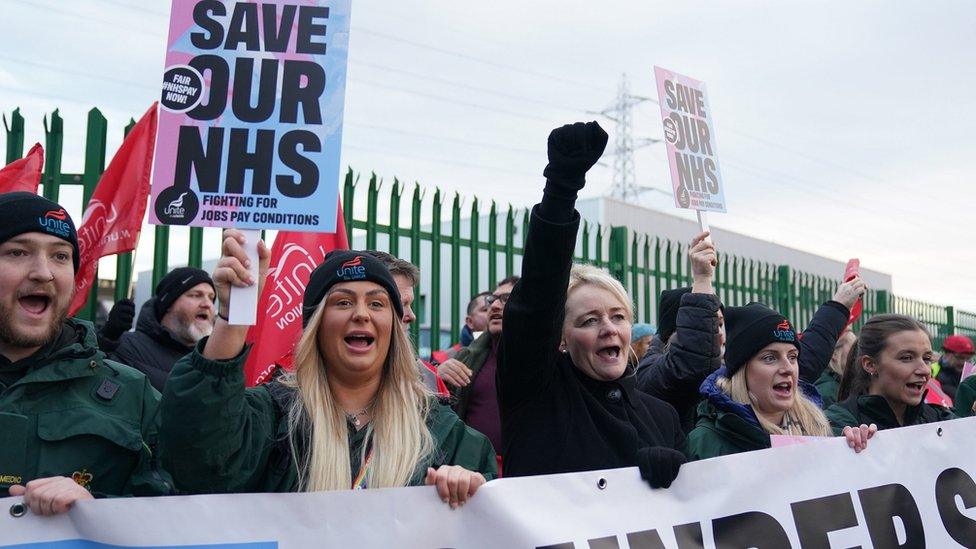
- Published21 December 2022

- Published20 December 2022
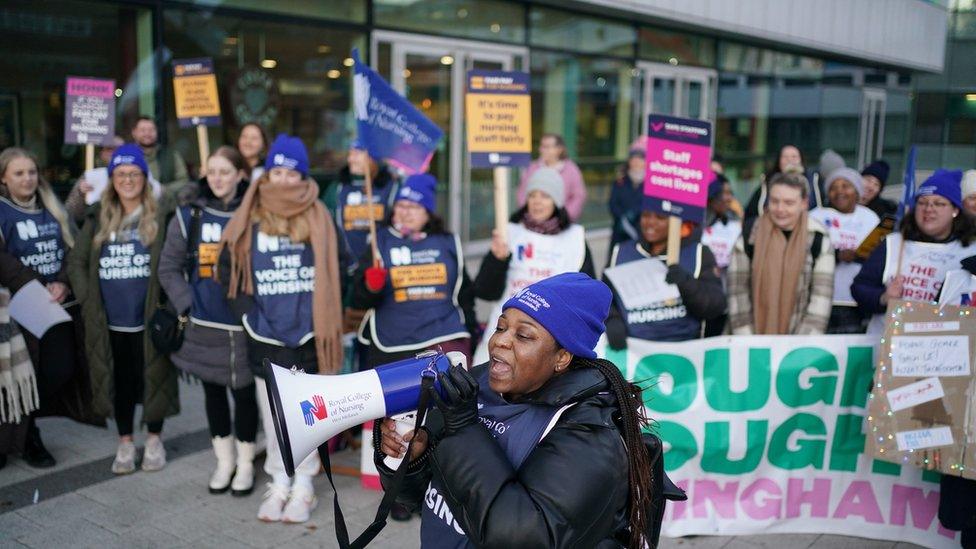
- Published10 January 2023
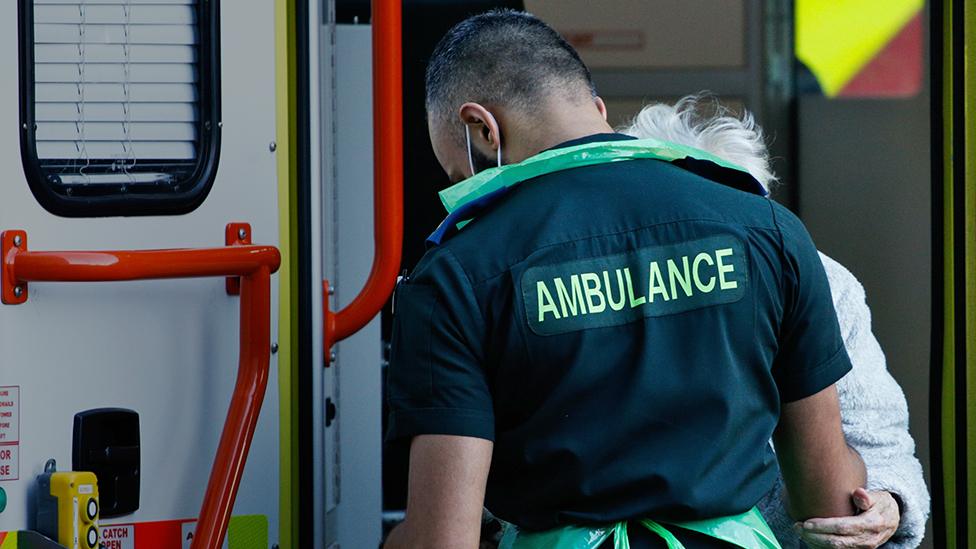
- Published19 December 2022
